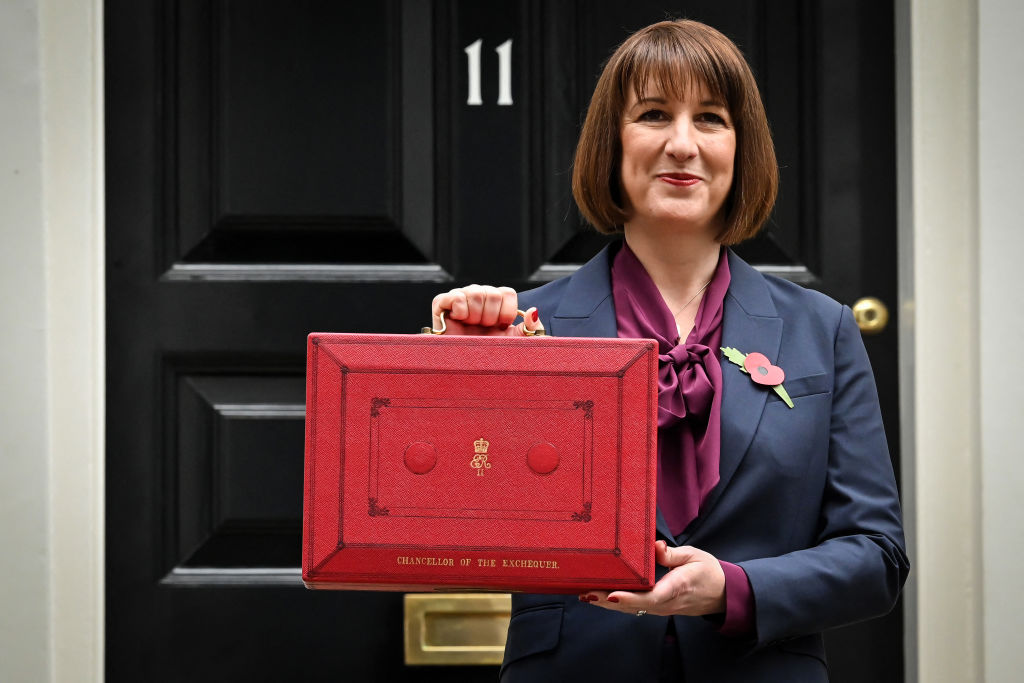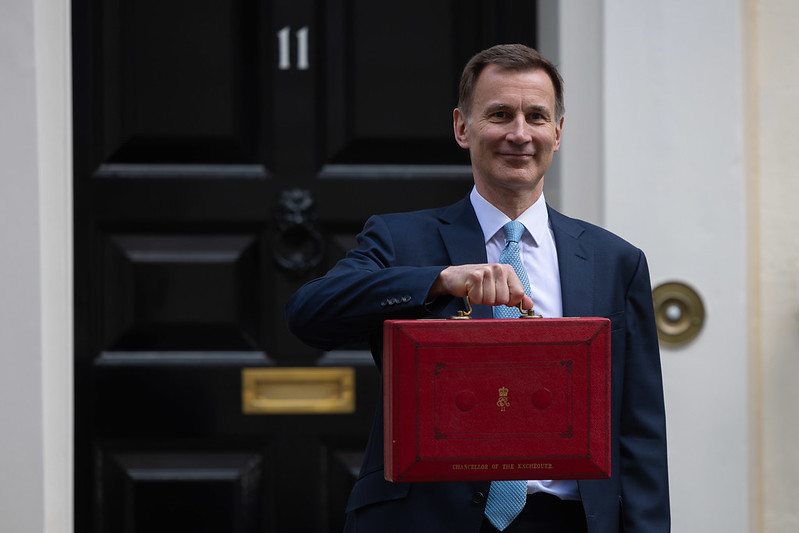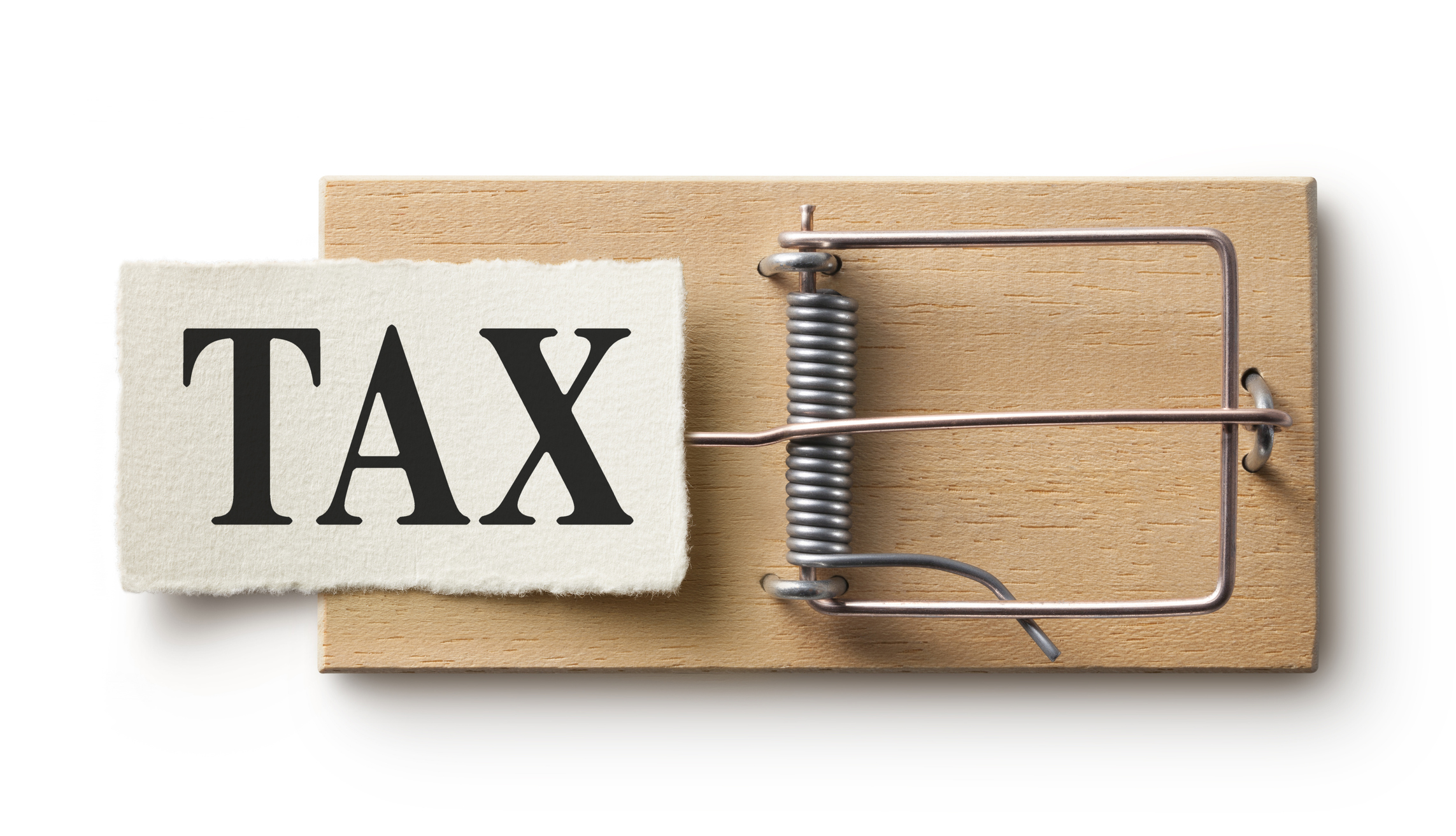How much state pension will I get?
There are several things that determine how much state pension you'll get when you reach state pension age. Here's how to work out your entitlement


Get the latest financial news, insights and expert analysis from our award-winning MoneyWeek team, to help you understand what really matters when it comes to your finances.
You are now subscribed
Your newsletter sign-up was successful
Want to add more newsletters?
If you’re approaching retirement, you might be thinking about how much your state pension will be worth. If you have checked using the government’s state pension forecast tool, you may want to check again, however – HMRC has recently fixed an almost decade-long error that left almost a million people with potentially the wrong forecasts.
The problem was with the Check your State Pension forecast tool, which went live in February 2016. The new state pension was launched in April that year.
The error with the pension forecast tool related to workers who had ‘contracted out’ of the additional state pension (a practice abolished on 6 April 2016). Since 2016, HMRC acknowledged some people who had been contracted out could have received incorrect state pension forecasts through the online tool. This was because their contracted-out deductions were not reflected in the online forecast.
MoneyWeek
Subscribe to MoneyWeek today and get your first six magazine issues absolutely FREE

Sign up to Money Morning
Don't miss the latest investment and personal finances news, market analysis, plus money-saving tips with our free twice-daily newsletter
Don't miss the latest investment and personal finances news, market analysis, plus money-saving tips with our free twice-daily newsletter
Although their National Insurance records were correct, if their record had received clerical intervention – namely if HMRC had updated their record manually with new information – the forecaster didn’t pick this up, meaning the contracted-out deduction wasn’t recognised.
As a result, some people could have received an inflated state pension forecast and may have made financial decisions based on this. This issue only affected the forecast and did not affect the calculation of their state pension.
A government spokesperson told MoneyWeek: "We're sorry for the problems that some people have experienced with the tool in the past but are pleased to confirm this update will ensure customers who reach state pension age after April 2029 will now receive a forecast which takes into account any years they were contracted out.”
How many people have the wrong state pension forecasts?
In 2019 HMRC estimated up to 800,000 customers may have been impacted by missing contracted out deductions in their forecast. Some of these people will have accessed the service and received an incorrect forecast, HMRC acknowledged.
HMRC has been making improvements to its systems since 2017 when issues were identified in the service and it started correcting the forecasts of customers who contacted it. It applied a fix to the online forecasting tool in 2021.
Any customers accessing the online tool since 2021, who reached state pension age before 2025, will have received the correct forecast, as will any customers who reach state pension age before April 2029 who have accessed the tool since February 2024. HMRC has now extended its fix to those reaching state pension age after 2029.
What happens if I had the wrong state pension forecast?
Where people do come forward and HMRC can verify they were affected by the incorrect forecast and may have a state pension shortfall as a result, HMRC will allow those affected people to pay voluntary National Insurance contributions for any years they would have been able to access at the point they had the incorrect forecast, which could be as far back as 2006.
This will allow people to fill gaps in their records and boost their state pension entitlement, and they will be able to pay for missing years at the rate that would have been charged had they paid for them at the point they accessed the incorrect forecast.
If anyone affected by an incorrect forecast paid these voluntary National Insurance contributions, these would be treated as paid on time. If the person is over state pension age, any increased state pension entitlement would be backdated.
Under the new state pension rules, as time goes on fewer people are likely to be affected by past contracting-out.
Anyone wishing to obtain a state pension forecast now can use the tool and follow the advice provided if they need further assistance, HMRC said.
How many people rely on the state pension?
More than 1.2 million retired households rely on the state pension for three quarters or more of their total income, according to analysis of Office for National Statistics (ONS) data by retirement financial firm Just Group – but this overreliance could leave you coming up short.
Trade body Pensions UK’s Retirement Living Standards suggest a single pensioner needs a yearly income of around £13,400 to achieve just the ‘minimum’ standard of living, leaving a shortfall of £1,427 per year once the current full new state pension (£11,973 per year) is factored in.
Not everyone is eligible for the full new state pension amount either and you could face an even bigger shortfall. How much you receive varies depending on your circumstances, including how many National Insurance years you’ve built up.
If you’re not yet of state pension age, trying to figure out how much you could get paid is made harder by the triple lock mechanism. This government policy means the state pension goes up every year, but the increase tends to change each time. It could be as high as 10% (or more), or as low as 2.5%.
Under the mechanism, the state pension will rise by 4.8% in April, in line with the average earnings growth element, affecting 13 million pensioners.
How exactly can you work out what your state pension entitlement will be – and can you boost your retirement fund if you’re facing a shortfall? Here’s everything you need to know.
How does the state pension work?
Understanding how the state pension is calculated is crucial when it comes to working out what your entitlement could look like. The amount you receive comes down to the number of years of recorded National Insurance contributions (NICs) you have.
If you're employed, your employer will have paid NICs on your behalf out of your wages. You can also top up your NICs record, while some people – like carers or parents – can get National Insurance credits.
Your NICs go into a national ring-fenced pot from which the state pension is paid. When you retire, you will receive an amount of state pension that's proportionate to what you've put in or received in credit (more on this below).
This system is rather different from the way a personal pension works. Most workplace pensions and SIPPs depend on the performance of the stocks and shares you have invested in, as well as whether you opt to access that pot through drawdown or by purchasing an annuity.
There are currently two state pensions in the UK. The one you will get will depend on when you were born.
Basic state pension
The old, basic state pension applies to men born before 6 April 1951 and women born before 6 April 1953. So, those who are eligible will have already hit state pension age (which currently stands at 66).
The full basic state pension is currently worth £176.45 a week (£9,175 a year), and is guaranteed to rise at least 2.5% each year due to the triple lock. To access this full amount, you need:
- 30 qualifying years of NICs if you are a man born between 1945 and 1951
- 44 qualifying years of NICs if you are a man born before 1945
- 30 qualifying years of NICs if you are a woman born between 1950 and 1953
- 39 qualifying years of NICs if you are a woman born before 1950
Having more than the full number of years of NICs will not entitle you to a higher pension payout. If you don't have the full number of years of contributions, the amount you will get will be reduced proportionately.
So, if you have 20 years of NICs but require 30 for the full amount, you will receive 20/30ths of the full amount (currently £117.63 a week).
New state pension
The basic state pension has been replaced with the new state pension, and it works in much the same way in that the amount you get is determined by how many years of NICs you have.
It is open to men born on or after 6 April 1951, and women born on or after 6 April 1953. Unlike the basic state pension, you have to have 35 years of NICs to get the full amount, and at least 10 years to qualify for it at all.
The current maximum you can receive is £230.25 per week (around £11,973 a year). This rises by at least 2.5% each year thanks to the triple lock.
The amount you get will be proportionately lower if you have between 10 and 34 years of contributions on your record. For example, if you have 20 years of NICs, you will get 20/35ths of the full amount (£131.57 a week).
How much state pension will I get?
To be eligible for anything from the new state pension, you need to have a minimum of 10 years’ NICs.
If you made NICs before 6 April 2016 – when the basic state pension was replaced with the new state pension – then these are used to work out a “starting amount”. This will be either how much you would have got under the old state pension rules, or what you’d get if the new state pension had been in place throughout your working life – whichever is higher.
Each year of contributions after 6 April 2016 will add around £5 to your state pension, until you reach the current maximum of £230.25.
You can get a pensions forecast from the government showing how much state pension you will get, through the gov.uk website. You will need to register for the Government Gateway to use the state pension forecast tool.
What counts as National Insurance contributions for the state pension?
National Insurance contributions are paid once you are 16 or over and start earning above a particular threshold. For employees, that threshold is earning over £242 a week, while for the self-employed they are classed as being paid once they make a profit of above £12,570 per year.
Many people have gaps in their National Insurance record. For example, if you've taken time out of your career to raise kids, care for a loved one, or go back into education, you may not earn enough to qualify for a full state pension.
However, you may be eligible for National Insurance credits, which can help you to plug some of these gaps.
Credits are also applied automatically if you receive Child Benefit, something many parents are missing out on. You can find out more about eligibility for National Insurance credits on the gov.uk website.
Can I top up my state pension?
If you have gaps in your National Insurance record, and don’t qualify for National Insurance credits, then you can make voluntary NICs. This can boost your overall record and increase the size of the state pension you will receive in retirement.
The rate you pay depends on which year you're buying.
- £824.20 a year (£15.85 a week) to buy 2022/23
- £907.40 a year (£17.45 a week) to buy 2023/24
- £907.40 a year (£17.45 a week) to buy 2024/25
- £923 a year (£17.75 a week) to buy 2025/26
If you're self-employed or you're topping up a partial year, the cost will be lower.
For each year you buy you get an extra 1/35ths state pension. This could add up to £340 a year to your state pension – or £6,800 over 20 years. This means that, as long as you live at least three years after the official retirement age, you’ll get your money back.
This system is good value when you consider that the state pension rises each year depending on whichever is the highest of 2.5%, wage growth or CPI inflation, thanks to the triple lock. In essence, the state pension becomes more valuable over time.
You can usually buy voluntary National Insurance credits for the previous six tax years.
It is really important to check whether you will benefit from buying voluntary credits as there may be cases where buying the extra credits does not boost your state pension. The government has a digital Check Your State Pension forecast service that it claims makes it easier for people to boost their National Insurance record.
But, for some situations, it’s worth calling the Future Pension Centre (part of the government) to talk through whether buying credits will increase your state pension.
What does the triple lock mean for my state pension?
The state pension triple lock was introduced under the coalition government in 2011, and is a way of ensuring that pensioners receive a meaningful increase to their state pension each year.
Under the triple lock, the state pension increases at the start of each new tax year by the largest of the following three figures:
- CPI inflation
- Wage growth
- 2.5%
The triple lock was paused for one year after the pandemic due to fears that there would be a surge in wage growth as people went off furlough. However, it has since been restored.
While a major boon for state pensioners receiving an increase in their payments each April, the triple lock’s viability has been called into question in recent years.
The Institute for Fiscal Studies (IFS), a think tank, has called for the costly triple lock to be replaced with a “smoothed earnings link” measure, like the one used by the Australian government.
Fellow think tank the Centre for Social Justice (CSJ) has said the triple lock should be scrapped and the billions of pounds saved put towards disadvantaged groups in society, namely white working-class boys.
State pensioners face 'fiscal drag'
More and more pensioners are being stung by the taxman through a phenomenon known as “fiscal drag”, which occurs when rising incomes meet frozen income tax thresholds.
Income tax thresholds have been frozen until 2031, as confirmed in the 2025 Autumn Budget, meaning the personal allowance will stay at the current £12,570 threshold. Under the triple lock, the full new state pension amount is likely to breach this threshold from April 2027.
The chancellor Rachel Reeves has confirmed those relying on just the state pension for their income won’t have to pay income tax until the end of this parliament and will be protected.
However, for pensioners who have other retirement income besides the state pension, they face having to fork out more and more to the taxman over the next five years.
HMRC estimates that 8.51 million people over state pension age paid income tax in 2024/25, a number likely to rise by 2031.
How do I claim my state pension?
The state pension is not paid automatically when you reach state pension age. Instead, you need to actively claim it. The DWP will contact you in the months leading up to you reaching state pension age to explain how you can do this.
If you’ve not received an invitation letter, but you’re within three months of reaching your state pension age, you can still make a claim, and the quickest way to do this is on the government website. To complete your claim, you’ll need the following details:
- the date of your most recent marriage, civil partnership or divorce
- the dates of any time spent living or working abroad
- your bank or building society details
If you don’t need the money immediately, then it may be worth deferring your state pension payments.
If you reach state pension age on or after 6 April 2016, your state pension is increased by 1% for every nine weeks you defer. As a result, deferring your state pension by a year will mean the payments are boosted by around 5.8%.
So for example, you get £230.25 a week (the full new state pension). By deferring for 52 weeks, you’ll get an extra £13.35 a week (5.8% of £230.25).
This example assumes there is no annual increase in the state pension. If there is an annual increase, the amount you could get could be larger.
When can I claim my state pension?
You can start to claim the state pension once you reach state pension age. This is currently set at 66 for both men and women. It is set to gradually rise to 67 between April 2026 and March 2028 and then to 68 between 2044 and 2046 – although there has been speculation that the latter rise could be brought forward.
When will the state pension be paid to me?
After you’ve made a claim for the state pension, you will get a letter about your payments, which will usually be paid every four weeks into an account of your choice. Note that you're paid in arrears. The payment day depends on your National Insurance number, although you might be paid earlier if your normal payment day falls on a bank holiday.
Last 2 digits of your National Insurance number | Payment day of the week |
|---|---|
00 to 19 | Monday |
20 to 39 | Tuesday |
40 to 59 | Wednesday |
60 to 79 | Thursday |
80 to 99 | Friday |
Who has been underpaid their state pension?
The DWP has been subject to severe criticism in recent years as millions of pounds in state pension underpayments are owed to pensioners dating as far back as 1985. The issues tend to centre on married women who were entitled to a state pension based on their husband’s National Insurance contribution record.
However, in many cases this increase did not take place, meaning that the women received a smaller state pension than they should have. More recently, divorced men and women have been urged to check their state pensions in case there were errors calculating their payments.
Between 11 January 2021 and 31 March 2025, the government identified 130,948 state pension underpayments, owing pensioners £804.7 million.
This is part of a historic correction exercise – kicked off in March 2021 – undertaken by the Department for Work and Pensions (DWP) to check hundreds of thousands of pension records to establish if pensioners have been underpaid.
The Office for Budget Responsibility has previously estimated the correction exercise could eventually cost the DWP almost £3 billion.
The DWP has confirmed to the Work and Pensions Committee that they have completed the vast majority of reviews, but are still waiting for people to contact them with information meaning the exercise won’t be fully completed until March 2027.
You can check whether you may have been underpaid by using this tool on the LCP website, and make a claim directly to the DWP if you have been underpaid. While the DWP is attempting to correct these underpayments, there remain thousands of pensioners who have been underpaid, in some cases going back decades.
Meanwhile, WASPI women could still be owed compensation over a government decision to increase their state pension age by up to six years.
Campaigners say 3.6 million women born in the 1950s were not properly informed of the rise in state pension age to bring them in line with men.
The government had denied the women would get a payout but a new document not previously seen by then work and pensions secretary Liz Kendall has since come to light that needs to be considered.
Can I still get the state pension if I retire abroad?
So long as you have built up a sufficient number of qualifying years of National Insurance contributions, then you can still receive the state pension even if you choose to retire abroad.
You will need to start claiming the pension within four months of hitting the state pension age, and you can do so by contacting the International Pension Centre. You can choose for the pension to be paid either every four weeks or every 13 weeks.
Your state pension will go up each year as long as you retire in a country that is within the European Economic Area, Gibraltar, Switzerland – or to a country with a social security agreement with the UK.
It means if you move to countries like Australia, New Zealand, Canada, India or South Africa, your state pension will be frozen and you won’t benefit from the triple lock.
If you're wondering how the UK state pension compares to those in other countries, check out our guide to the countries with the most generous pensions.
Do I get my partner’s state pension when they die?
If you are married or in a civil partnership and become widowed you may be able to inherit an extra payment in addition to your state pension.
This doesn’t apply if you get remarried or enter in a new civil partnership before you reach state pension age though.
Can I inherit the additional state pension?
If you were married or in a civil partnership before 6 April 2016 you may be able to inherit part of your partner’s additional state pension. The additional state pension – also known as the second state pension – was a top up to the basic state pension.
But in order for you to qualify, one of the following also has to apply:
- your partner reached state pension age before 6 April 2016;
- they died before 6 April 2016 but would have reached state pension age on or after that date.
You can inherit up to 50% of your spouse or civil partner’s state second pension. Any additional payment you’re due will be paid with your state pension. The maximum amount of additional state pension you can get is £222.10 per week (though this limit does not include any state pension top up you may be entitled to).
Can I inherit a Serps pension?
If your partner or spouse was in a state earnings-related pension scheme (Serps) the maximum you can inherit depends on when your spouse or civil partner died. If they died before 6 October 2002, you can inherit up to 100% of their Serps pension.
If they died on or after 6 October 2002, the maximum Serps pension and state pension top up you can inherit depends on their date of birth.
Man’s date of birth | Woman’s date of birth | Maximum % of SERPS and State Pension top up you can inherit |
|---|---|---|
5 October 1937 or before | 5 October 1942 or before | 100% |
6 October 1937 to 5 October 1939 | 6 October 1942 to 5 October 1944 | 90% |
6 October 1939 to 5 October 1941 | 6 October 1944 to 5 October 1946 | 80% |
6 October 1941 to 5 October 1943 | 6 October 1946 to 5 October 1948 | 70% |
6 October 1943 to 5 October 1945 | 6 October 1948 to 5 July 1950 | 60% |
6 October 1945 and after | 6 July 1950 and after | 50% |
You may also be entitled to inherit extra state pension or a lump sum from your partner under certain circumstances.
This includes if they died while they were deferring their state pension (before claiming) or they had started claiming it after deferring. Also if they reached State Pension age before 6 April 2016 and you were married or in the civil partnership when they died.
For more specific details of what you personally can claim and how, contact the Pension Service.
Get the latest financial news, insights and expert analysis from our award-winning MoneyWeek team, to help you understand what really matters when it comes to your finances.
Laura Miller is an experienced financial and business journalist. Formerly on staff at the Daily Telegraph, her freelance work now appears in the money pages of all the national newspapers. She endeavours to make money issues easy to understand for everyone, and to do justice to the people who regularly trust her to tell their stories. She lives by the sea in Aberystwyth. You can find her tweeting @thatlaurawrites
-
 What the government’s baby boomer retirement data says about the future of pensions
What the government’s baby boomer retirement data says about the future of pensionsA study of the retirement routes of people born in 1958 paints a worrying picture for people’s pension savings
-
 An experienced investor’s end of tax year checklist
An experienced investor’s end of tax year checklistThe clock is ticking down before the end of the 2025/26 tax year, when any tax-free savings and investment allowances are lost. For experienced investors, though, the deadline for some tax-saving schemes is even earlier.
-
 The most and least expensive countries to be an expat in 2025
The most and least expensive countries to be an expat in 2025With some Brits fleeing the country to avoid seemingly ever-increasing taxes, we look at the most and least expensive countries to emigrate to.
-
 What has changed with employers’ National Insurance – and how will it impact you?
What has changed with employers’ National Insurance – and how will it impact you?Will you feel the effects of the National Insurance hike, as businesses warn of redundancies, smaller pay rises and higher inflation?
-
 Conservatives pledge to cut National Insurance again – how much could you save?
Conservatives pledge to cut National Insurance again – how much could you save?News A 2p reduction in National Insurance is a key feature of the Tory’s general election manifesto.
-
 Workers set for new national insurance tax cut – how much will you save?
Workers set for new national insurance tax cut – how much will you save?News National insurance tax rates have fallen but frozen allowances may limit the benefits.
-
 Budget 2024: National Insurance cut, a new British ISA, and reform of the child benefit charge - here’s what has been announced
Budget 2024: National Insurance cut, a new British ISA, and reform of the child benefit charge - here’s what has been announcedThe chancellor has announced a host of changes, including cutting National Insurance again, and abolishing some tax reliefs. Here’s how the Budget will affect your finances.
-
 Brace for a year of tax rises
Brace for a year of tax risesThe government is strapped for cash, so prepare for tax rises. But it’s unlikely to be able to squeeze much more out of us.
-
 Topping up state pension to become easier with new online tool
Topping up state pension to become easier with new online toolAnyone looking to buy extra National Insurance contributions and boost their state pension currently has to make multiple phone calls - but a new online tool is on its way.
-
 Act now to bag NatWest-owned Ulster Bank's 5.2% easy access savings account
Act now to bag NatWest-owned Ulster Bank's 5.2% easy access savings accountUlster Bank is offering savers the chance to earn 5.2% on their cash savings, but you need to act fast as easy access rates are falling. We have all the details
